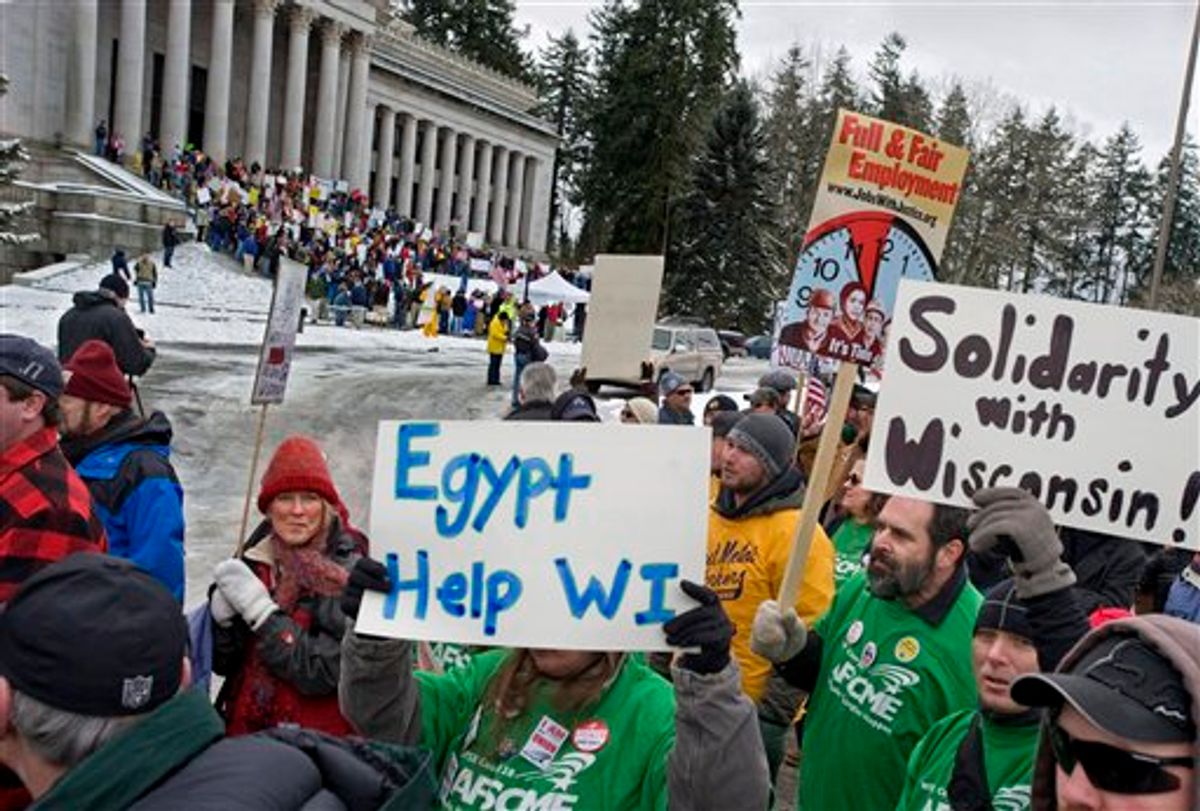This piece originally appeared at Robert Reich's blog
Look at the outrage in Madison, Wisconsin. Look at the crowds in Des Moines, Iowa. Look at the demonstrations in Indiana and Ohio and elswhere around America.
Hear what they're saying: Stop attacking unions. Stop making scapegoats out of public employees. Stop protecting the super-rich from paying their fair share of the taxes needed to keep our schools running.
Stop gutting the working middle class.
Are we finally seeing average Americans stand up and demand a fair shake in an economy now grotesquely tilted toward the wealthy and the privileged? Are Americans beginning to awake to the fact that our economy now delivers a larger share of total income to the very top than at any time in living memory? That big corporations are making more money and creating more jobs abroad than in the United States?
That this concentration of income and wealth has so corrupted politics that corporations can extort whatever they want from the government -- tax breaks, loan guarantees, subsidies -- while the super-rich can take most of their income as capital gains (taxed at 15 percent), and the rest at the lowest top rate in 25 years? And that because of this our kids are crowded into classrooms, our streets and highways and bridges are falling apart, and our healthcare bills are out of control?
The Tea Party grew out of indignation over the Wall Street bailout -- an indignation shared by the vast majority of Americans. But the Tea Party ended up directing its ire at government rather than at big business and Wall Street. Was this because billionaires Charles and David Koch and their like funneled money to the Tea Party through front organizations like Dick Armey's Freedom Works, and thereby co-opted it?
Now we may be seeing the birth of a genuine populist movement. Call it the People's Party. Like the Tea Party, the People's Party doesn't have a clear organization or hierarchy or single address. It doesn't have lobbyists in Washington. It's not even yet recognized by the mainstream media.
But the People's Party seems to be growing in numbers and in intensity. And it's starting to push elected officials -- first at the state level -- to listen and respond.



Shares